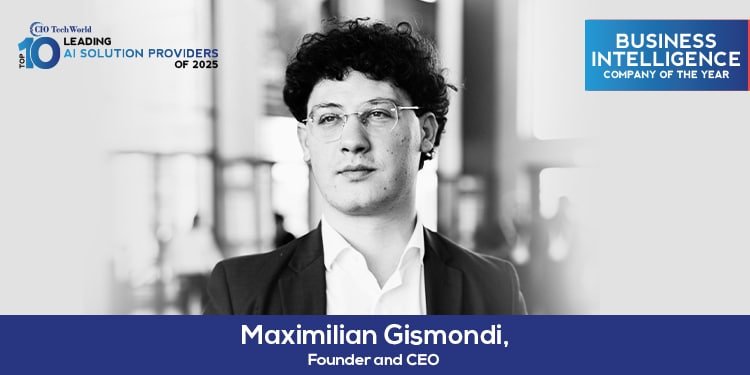I had the privilege of engaging in a conversation with Don Welch, VP for Information Technology and Global University CIO at NYU, which undoubtedly ranks among my most exceptional encounters with technology leaders. His career trajectory is truly remarkable. Starting as an Army officer, Welch honed his leadership skills within the military’s trust-based framework—a foundation that propelled him toward the realm of IT leadership. Despite his primary specialization in a combat-oriented field, he intentionally shifted his focus toward his secondary specialization in information technology, even though it meant encountering limited opportunities along the way. However, the accomplishments he achieved thereafter are truly impressive.
Driven by an insatiable thirst for knowledge, Welch pursued and successfully earned a Ph.D. in computer science. Throughout his professional journey, he gracefully transitioned between various roles, donning the hats of a CTO, CEO, and CIO. His career path, characterized by notable achievements, serves as a testament to his unwavering commitment to excellence. It is my great pleasure to present to you the extraordinary journey of Don Welch—a true inspiration in the field of technology leadership.
Describe your career progression from the start to where you are and what were pivotal decisions, moves you made, circumstances, and other facts that facilitated your growth.
I graduated from the United States Military Academy at West Point after studying Mechanical Engineering. I enjoyed building things but intended to be an Army officer. Career development for Army officers includes a primary specialty which is usually more combat-oriented and a secondary specialty like HR, public relations, etc. During my initial development as an infantry officer, I learned leadership. Military leadership is based on trust. We all depend on each other to survive. My ability to build trust has been the most important factor in my success as an IT leader.
My secondary specialty was information technology and the Army sent me for a master’s in computer science. I enjoyed it so much that I switch career tracks to focus solely on IT even though it meant limited opportunities for promotion. One of my assignments in IT was teaching computer science back at West Point. I then also discovered how much I enjoyed teaching. Later I had the opportunity to get a Ph.D. in computer science and finish my Army career back at West Point as a professor and then CIO. The Army is physically demanding and so mandatory retirement comes early.
Leaving the Army, I had the opportunity to be the CTO for H.E.B. a grocery chain. Not having worked in the commercial sector, I learned a tremendous amount about business. Retail was especially good for this because the cycles are so short. You can make a change and see the result in the numbers the next week. Another thing that I learned was that I need a sense of purpose, so I decided to return to education.
Merit Network is a not-for-profit that serves education members throughout the state of Michigan. As CEO of Merit, I had a great opportunity to build a company that had struggled while staying in the technology and education industries in which I had a good background. During my time there we went through three strategic initiatives that built on our core strength. To do that we first needed the right leaders. Selecting and developing those leaders was my top priority. Then we needed to understand what our true core strength was. We could then look ahead, and understand the needs of our customers, and our ability to meet those needs. This is not as easy as it sounds. Because of the lead time required, we had to decide on our strategic direction before our current initiative had even peaked.
While a professor at West Point, two friends and I saw the growing need for cybersecurity in the Army and developed a program to teach cadets. We started by developing two courses: one for computer science majors and one for non-technical cadets. We also establish a cybersecurity competition among the service academies. Over time cybersecurity programs have grown at the academies as well as in civilian universities with competitions being a common component. My love of cybersecurity and my need for purpose in my professional life led me to the University of Michigan. They had an interesting challenge in that to increase collaboration across the health system, medical school, and campus required a single cybersecurity program to facilitate data sharing. With a single security program, a major obstacle to information sharing fell to the side. No longer could the health system argue that the campus would not adequately protect health information because it was subject to the same protections by the same office regardless of where it was stored or who accessed it. Penn State had suffered a major breach while I was at Michigan and as a result, their federal research portfolio was threatened. I then helped Penn State improve their cybersecurity program. In both cases, I built trust and convinced others to act where I didn’t have authority.
When the CIO at Penn State left, I was asked to step in as interim and was later selected as the CIO. Research universities are large and complex. Penn State has over 60 IT departments. The challenge is to align this federated structure to get the balance right between services delivered at the edge and central services. Once again, I could not rely on authority – I didn’t have it – but I relied on trust and influence.
NYU had needs from the CIO role that matched very nicely with my experience and abilities. With my experience, I was able to understand the environment pretty well during the interview process. It is easy to be seduced by the job, neglecting to truly understand what is needed to succeed and how well you fit. You can take on the most challenging roles when you understand what is required and have the self-knowledge to assess your abilities.
What are the key skills and qualifications that aspiring tech executives in the tech industry should focus on developing to enhance their career prospects?
My perspective is that the best executives are great at relationships and trust. From that comes the ability to influence others. As an executive, you have to be able to lead people that you don’t have authority over.
Related is the ability to communicate. Many executives can speak, write, etc. Not as many are good at listening and understanding.
Lastly, the best executives are great coaches. They develop their people to get the most out of them and build lasting and strong relationships.
What are some key milestones or achievements that tech executives should aim for at various stages of their careers to demonstrate their growth and readiness for higher-level roles?
If you stay in the same organization your reputation will speak for you. Otherwise, you must be able to sell yourself during an interview. Concrete accomplishments and responsibilities are key.
- Responsibilities:
Lead a team
Lead a multi-layered team
Interact with senior leaders
- Accomplishments:
Major projects and initiatives
Cost reductions
These are not just experiences that help you grow, but evidence you can use in an interview to convey your value.
How important is it for tech executives to actively seek out mentorship or coaching opportunities to advance their careers? What benefits can they derive from such relationships?
There are lots of different ways to grow as a leader. One of the easiest is to be coached by your boss. Here your obligation is to be coachable. Mentoring as I understand it is voluntary on behalf of the mentor and mentee. Here you must find and build a relationship with the mentor. Normally they should not be in your reporting chain (see coaching). Especially early in your career, another person can help you build your self-awareness.
In your experience, what role does professional networking play in the career progression of tech executives? How can tech executives effectively build and leverage their networks?
Networking is important in a number of ways. Having someone you can bounce ideas off of, get help from, recommend you, and many other things. I think the best way to build a good network is first, to never miss an opportunity to do someone a favor and second, to keep in touch with people. A note, a call, meeting for a coffee or drink whenever practical helps keep a relationship. When you help someone out, not only does it feel good but it inspires others to help others. You may never need help directly from the people you have helped, but when you do the more the merrier!
Are there any specific certifications, advanced degrees, or executive education programs that can significantly enhance the career prospects of tech executives in the tech industry? Which ones would you recommend?
For someone with a Ph.D. who has taught in both higher education and professional classes, you might be surprised to hear me say no. Not that there isn’t value in all these experiences, but that they are all part of a path to growth. As a CISO, I didn’t care about CISSP (Gold Standard in Cybersecurity Certs) I cared about what they had accomplished and more importantly what their potential is. Education and training help you grow and learn how to grow. I’ve worked with incredibly effective executives without the education or certification you might expect them to have. I’ve also fired executives with all the education you could hope for.
Can you share how you have successfully transitioned from one role (e.g., CIO) to another (e.g., CEO) within the same organization or industry? What factors contributed to your success?
I have taken over a role when the incumbent was asked to leave. I was asked to take over because the leadership trusted me to at least not cause any more damage and the group trusted me to calm people in this time of turmoil. Trust is the most important, everything flows from there. When you have built trust throughout the organization, you’ll get the opportunity for a promotion. As you step into the role, trust will give you the breathing room to calmly understand the environment and make good decisions.
How important is it for tech executives to cultivate a personal brand and establish thought leadership within the industry? What are some effective ways for tech executives to showcase their expertise and gain visibility?
I’m a baby boomer and not a big believer in a personal brand. I like to let my actions speak for themselves. So maybe that is my brand. I think of establishing a personal brand as finding and promoting something that makes you stick out. First, I think you have to be genuine. Leaders come in all shapes, colors, backgrounds, and personalities. Don’t try to be someone you are not. Trying to be a thought leader is the best way to establish a personal brand as an empty shirt. When you have good ideas share them. The process of doing that forces you to think through your idea and clearly articulate it. Rehashing the same idea in different venues makes you more like some research and consulting companies I know. Presenting at conferences, speaking up at events, writing, and publishing are all great, but when you do learn more than you lecture.
Lastly, what advice would you give to aspiring tech executives who are looking to accelerate their career progression and make a lasting impact in the tech industry?
Take on the roles that interest you and are fun. Don’t back down from a challenge, but don’t knowingly get into a situation where you can’t succeed. Commit to continuous improvement. You can always get better. Learn to take feedback and use it to learn. Listen, really listen. Finally, be patient and don’t get frustrated. You never know when opportunities will arise. The more senior you get the more luck plays into roles coming open and you are being chosen from them. As you keep striving to improve, don’t forget to enjoy what you do and take pride in what you accomplish.

As a visionary Business and Technology Leader, I bring a proven track record of driving innovation, fostering collaboration, and delivering exceptional results in fast-paced and dynamic environments. I have honed outstanding skills in articulating a compelling vision and rallying active support from internal executives, development teams, and client business and IT leadership. I am proud to be a member of both the Forbes Technology Council and HITEC (Hispanic Technology Executives Council), which underscores my commitment to being at the forefront of industry trends and developments.
My special talent is demonstrating value to clients at all touch points – I instill these concepts in my teams.









